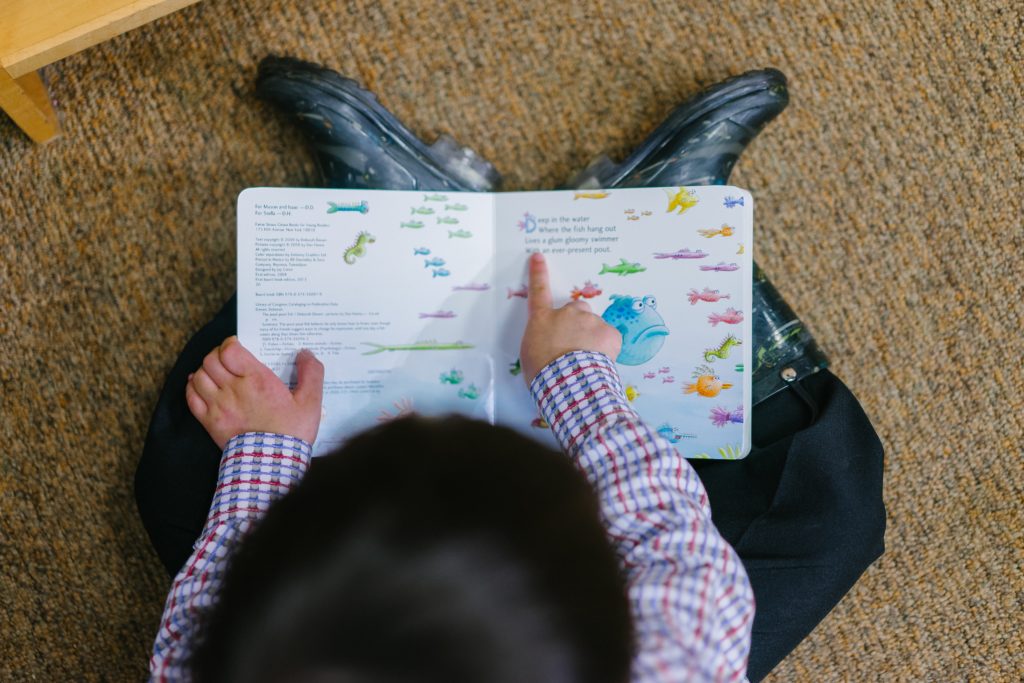Reading is such an important part of every child’s development, but it has always been quite a task to get kids involved with reading. Trying to find activities for your child that are fun and exciting but also educational and worthwhile can be tough, but reading is an excellent idea.
In this digital age, it’s far easier to pop your little one in front of a screen or even put on an audiobook than to get them involved in reading. Whilst audiobooks can be good alternatives to TV shows or films, reading a good book with your child has endless benefits.

Read on to get some helpful tips to keep your child engrossed with reading by making it both fun and educational.
Treat Them to a Personalized Book
If you have a child who is hesitant when it comes to reading, one way to keep them interested in reading is by snuggling up with a story personalized with their name. Children love to be the centre of attention, so by reading a book personalized with their name, they can have fun hunting for their name hidden in illustrations or read about themselves going on adventures with lovable characters. This is guaranteed to keep your child interested throughout the story.
Pay Attention to the Pictures
It is important to engage your child’s senses, like using textured baby books or focusing on a book’s illustrations. Paying extra attention to the pictures and illustrations in books is a great way of introducing books to shy readers or kids lacking confidence in their reading skills. Looking at the pictures can also be a nice break for the child if they are still fairly new to reading. It breaks up the time concentrating on the words and meanings of the story and also allows them to have fun looking at bright, colorful images.
Try Non-Fiction
Another idea for older children would be to introduce them to non-fiction books, especially non-fiction books about a topic they are already interested in, like a book about space for a budding astronaut. Your child might feel indifferent towards reading any fiction books designed for their age group, as they might just be too inquisitive and curious about the world for anything make-believe. Non-fiction books can provide an awesome go-between and get your child involved in reading in a passionate and educational way. They might decide to try fiction books later down the line and expand their imagination, or they might become dedicated academics and love learning more and more with every non-fiction book they read.
Introduce a Book Review System
We all know how much kids like to talk and voice any and all opinions they have. Whilst this can be exhausting at times, use this to your advantage and create a book rating system that works for your child. You can try a simple thumbs up or down system, or you can create your own method using fun stickers or even get older children to write a small review. If there’s one thing we all know, it is that every child is unique, so create a system that suits them! This will help keep your child engaged when reading the book, as they will be debating how much they’re enjoying it, but also encourage them to speak their truth and hopefully find more books they love.
Choose Diverse Books
Every child wants to see themselves reflected in the stories that they read, which is why many children tend to gravitate towards books where the protagonist is the same gender as them. Children only start inadvertently doing this when they reach a certain age, so introducing your child to more diverse books from a young age will be incredibly beneficial to them in the long run and educate them about the wider world. Expanding your child’s library with books featuring characters from the opposite sex or from more diverse backgrounds will be highly educational. This will prepare your child for the diverse and exciting world that we live in and equip them with excellent empathy and understanding later in life.
Reading can be a wonderful bonding moment with your child, but not when they’re not interested or only want to read the same book over and over. Hopefully, with these tips, your child can fall in love with reading and you can create the foundation for a hobby they will love for years to come.

Leave A Comment